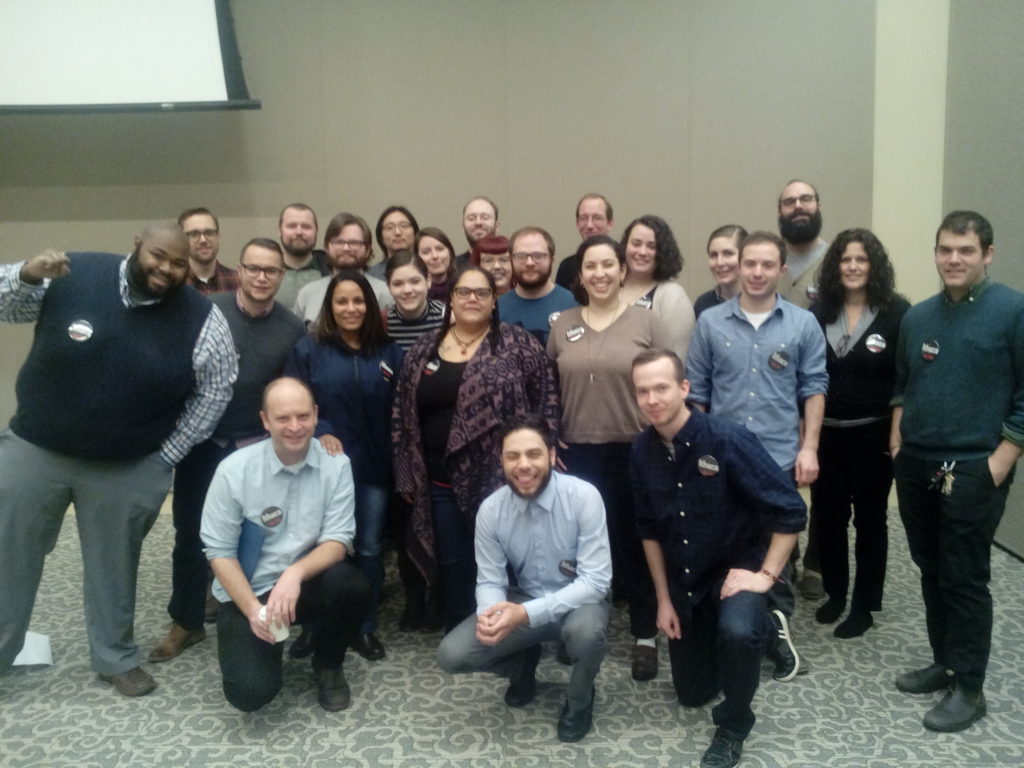
Nearly a quarter of the 46 members of the Guild-represented Northeast Region Organizing Project were missing from a four-day employer-sponsored workshop in late January. What wasn’t missing was a provision in the Washington-Baltimore News Guild contract stipulating that the American Federation of Teachers has to provide annual training to every member of the NEROP shop.
Fellow WBNG members had their back. In protest of the absent colleagues assigned to the Cornell Higher Education campaign, the other three-quarters of the NEROP unit took “button action” at the training session, wearing Ithaca-support badges all day and posting related images on social media. For the purposes of News Guild solidarity It was anything but “too little too late.”
AFT-NEROP workers in Ithaca and Philadelphia had been told in early January that they would not be going to the training sessions (Jan. 30-Feb. 2) near Washington, D.C. even though all other NEROP organizers – including those based in Buffalo, New York City, Long Island, Vermont, and Massachusetts – would be in attendance.
The reason given by management? As a NEROP Guild member put it in a statement on Jan. 9: “The Ithaca shop is being denied access to attend the NEROP training on the grounds that the Cornell Higher Education Project takes precedence.”
“Since a representation election will not be conducted until late March at the earliest,” noted Mark Friedman, NEROP unit chair and chief steward, “we were not convinced by management’s argument that a four-day training would undermine the success of the Cornell campaign.”
On Jan. 13, a Friday, Guild members filed a grievance against AFT management in Ithaca, noting that the refusal to provide such training violated the three-year contract signed in July 2015. On the following Monday, nearly every member of the Ithaca shop faced some form of intimidation, with one being disciplined for taking personal days and another having a per-diem revoked.
Friedman, speaking from the workshop site in Silver Spring, Md., said that the training violation and other issues finally and for the most part have been resolved.
Meanwhile, there’s no question that the unit members have grown closer. The early-January protest statement emphasized that training “not only serves as an important source of our professional development, but also is a chance for our entire unit to meet and grow stronger.”
And as it turned out, the rest of the unit made the best of its chance. “Despite management’s efforts to intimidate us, their tactics failed,” the Ithaca Guild members said in an email. “In fact, they made us stronger and more united than before.”
